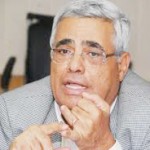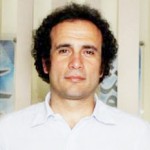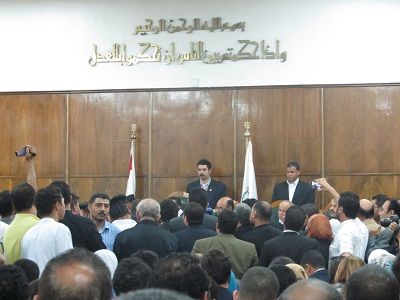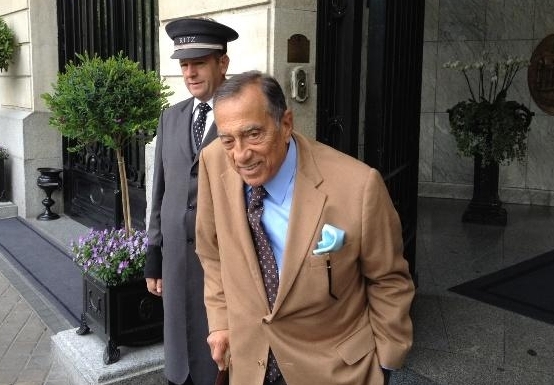Opinion writers in different Egyptian newspapers have discussed an assortment of topics. Some of them have tapped upon the deceptive commonly used statement “the revolution has been stolen,” claiming that some political forces merely use the statement to cover up for their division and disorganisation. Some other commentators have written about the recent strikes in Egypt Air and the government’s passivity towards the employees demands. In another note, columnists have discussed the growing phenomenon of sexual harassment and the effective role that can be played by media to help end this social disease.
Amr Al-Shobaki
Stealing the revolution
Al-Masry Al-Youm newspaper
The commonly used expression “The revolution has been stolen” has become pointless in Al-Shobaki’s estimation. The term is used by parties who have failed to correctly figure out the mechanics used by those who have reached power today. “A stolen revolution” is a statement that reminds Al-Shobaki of the typical notion behind the conspiracy theory, where weaker parties fall short in competing with their rivals and constantly create excuses for their pitfalls.
In Al-Shobaki’s viewpoint, analysts should scrutinise the recent developments while balancing out the weight of political forces playing on the stage. Al-Shobaki states that the revolution was not stolen by the once-ruling Supreme Council of Armed Forces or the Muslim Brotherhood. It was rather abducted by a political power that has been unifying its efforts to utilise means and resources to reach authority.
The writer condemns those who throw the blame on the uprising to cover up for their division and disorganisation. There are parties who have considered the revolution as a means, and others who look to it as an end. The Muslim Brotherhood has utilized it as a means to eventually reach their end; which is authority over Egypt. Al-Shobaki ends his column noting that no revolution has achieved its demands in a single blow. It is true that Egyptians have ousted Mubarak and his regime, yet a stronger Egypt will only be created if parties focused their efforts towards development and reform, not while repeating the meaningless statement of “The revolution has been stolen.”
Hassan Nafaa
An analysis of the current political scene
Al-Masry Al-Youm newspaper
In an attempt to dissect the current political scene, Nafaa lists a number of observations that reflect the repercussions of the rising tide of Political Islam. Recalling the relationship between the Supreme Council of Armed Forces and the Muslim Brotherhood, the writer describes it as being extremely cooperative in the first stages of transition. The bond soon became fragile with the Islamist group’s persistence to run for the presidency.
The conflict then intensified leaving the country in a critical situation, lost in struggles. The analyst estimates the coming period will witness a massive increase in the Muslim Brotherhood’s dominance paving the way for more solid ground for Islamists in the political realm. Nafaa states that the Muslim Brotherhood, with its majority of votes, would not have enjoyed being politically outshone unless in tremendously exceptional circumstances.
Moreover, the analyst confirms that the military institution will remain one of the primary ingredients in Egyptian politics. Based on the earlier observations, Nafaa finally anticipates that the coming phase in Egypt will face two major predicaments. The first of them rests on the conviction that the Muslim Brotherhood will not remain powerful as it their situation now. The second challenge lies within a set of political powers who believe that societal reform will not be reached as long as Islamist groups are up and running.
Emad Al-Din Hussein
Don’t blame strikers in Egypt Air
Al-Shorouk newspaper
The recent strikes organised by Egypt Air cabin crews prompted Hussein to voice his support with all employers who are protesting for better working and living conditions. In his column, the writer notes that the staff’s sit-ins can be deemed as a mere representation of the oppression they have been suffering for a while. It seems that the Egyptian community will consume a longer time to well-digest the genuine idea of practicing democracy. Hussein asks why those who oppose the Egypt Air strikes have not for once considered their desire to upgrade their work climate and boost their living standards. Angry employees have been submitting petitions, complaints and appeals to almost all managers in the body.
Unfortunately, the writer believes that the Egyptian government’s passivity makes it reach a complicated situation before it actually starts taking any actions. He reminds the readers of how the demands of the revolutionaries were ignored for a long while until a strong uprising hit the country’s political and social and economic spheres.
He calls upon the Islamist government to consider the demands of the strikers and recall that the Muslim Brotherhood owes Egyptians the power they have reached today. Wrapping up his column, the writer expects an increasing wave of protests from various sectors in the society as long as the government reacts indifferently towards all their requests. It will not be an easy pill for the government to swallow if demonstrations and strikes hinder the smoothness of daily life. Therefore, it is time for the government to think wisely, and act.
Amr Hamzawi
A real chance for unity
Al-Watan newspaper
Egypt’s liberal and leftist blocs have a golden chance to unify their efforts against their competition with the skyrocketing popularity of Political Islam, Hamzawi assumes. He calls upon liberals to put aside their personal interests while playing politics and commence actual interactions with citizens via different media tools. Scrutinising the climate around leftists, the analysts confirms that their division and disorganisation ensue from their focus on gaining maximum personal interests or benefits out of their political activity. Another challenge, in Hamzawi’s viewpoint, that hinders the liberal coalitions from winning fierce competition in front of their rivals would be their inner battles for leadership positions inside the spheres of their own parties.
The writer also explains that most of the liberals undermine the risk of centering their attention on media rather than actual work on the ground. Many famous liberal figures have preferred the fame of TV talk shows to practicing the professional political interactivity with ordinary Egyptians. Speaking about the liberal bloc’s relation to Islamists, Hamzawi has repeatedly refuted in his article any intentions of hatred towards the conservative political players, namely Salafis and the Muslim Brotherhood. He further confirms that competition does not necessarily imply hostility towards Political Islam.
Finally, the writer recalls meetings that bring him together with the ex-presidential candidate Hamdeen Sabahy that are said to be held in churches and monasteries. He denies that meetings were organised in a religious place and confirms his aims to separate religion from politics.
Rasha Allam
Sexual harassment and treatment solutions
Al-Watan newspaper
The excessive and common incidents of sexual harassment hitting the societal sphere in Egypt, worries Allam. In her column, she condemns the increasing trend of sexual harassment and strives to list a number of recommendations to draw the phenomenon to a close. She states that the passive attitude towards harassers could be one of the main encouraging reasons for the phenomenon to grow. Allam chides the government for missing a strict punishment for sexual harassment that could help in cutting the deep roots of this disease. She also calls upon Egyptian media, whether TV or radio, to start airing awareness programs that emphasise the supposedly good manners of Egyptian society.
In her viewpoint, it is insufficient to focus on religious talk shows that link the trend to religion only. Sexual harassment is also more of a social phenomenon than being solely religiously associated. She stresses the fact that religious shows sometimes refrain from tackling the phenomenon out of social embarrassment.
Wrapping up her column, Allam suggests that religious programs could tackle sexual harassment as a sort of a socially dangerous phenomenon expanding everyday to threaten the morals of the Egyptian society. In her opinion, media plays an important role in influencing the public opinion towards a variety of vital topics. Therefore, media should start dealing with sexual harassment in a more serious way.








